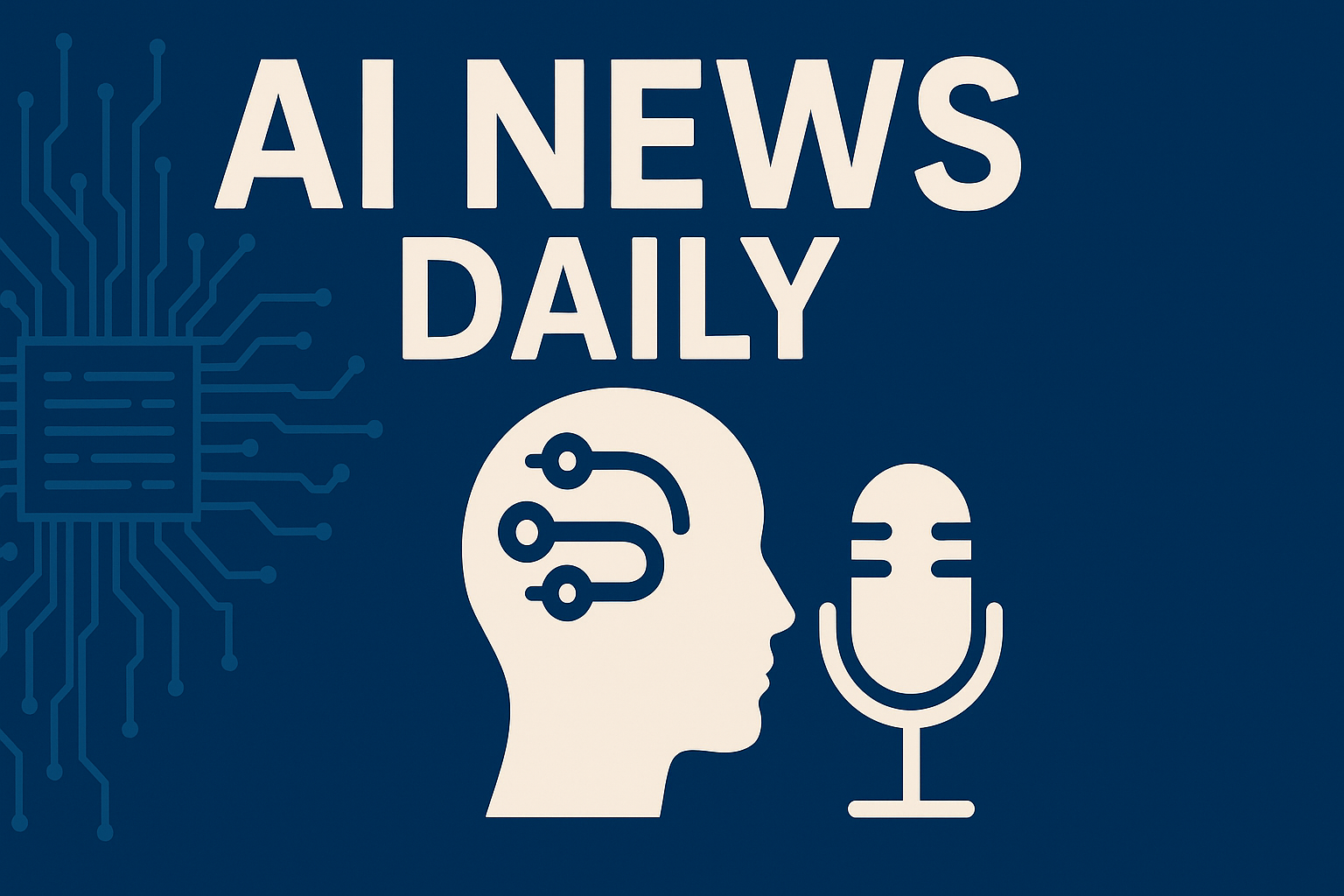Title: AI Industry Races Ahead: Meta’s Tie-Ups, Walmart’s Super Agents, Healthcare Breakthroughs, and Rising Security Scrutiny
Content: The AI landscape accelerated across big tech, enterprise, healthcare, and education, while security and legal risks intensified.
Meta is deepening its AI push on multiple fronts. The company inked a deal with Midjourney to bring advanced image and video generation to Facebook, Instagram, and WhatsApp—aimed at streamlining ad creation and bolstering deepfake defenses—while raising new IP and compliance questions. In parallel, Meta is exploring integrations of Google’s Gemini and OpenAI’s GPT across its apps to enhance personalization and content generation, even as it continues developing Llama 5; the talks spotlight fresh data-privacy concerns and strategic alliances. Midjourney separately launched its V1 Video Model for $10/month (web-only), offering affordable AI video creation amid ongoing copyright scrutiny. Meta also hired Shengjia Zhao, described as a ChatGPT co-creator, as its new chief AI scientist amid internal restructuring, and faced backlash over flirty chatbots modeled on celebrities without consent.
Cloud and enterprise ecosystems saw new linkages and tools. Oracle and Google partnered to make Gemini’s multimodal, video, and healthcare models available on Oracle Cloud. Reliance, led by Mukesh Ambani, announced “Reliance Intelligence” with Meta and Google to build AI cloud infrastructure in India. GitHub Copilot added model choice (including GPT-4.1, Claude, and GPT-5), faster responses, and larger context windows. Google rolled out Workspace upgrades—on-the-fly summaries, AI meeting notes, and doc-to-video tools—and introduced Gemini’s Temporary Chat mode with 72-hour, training-excluded conversations for greater privacy.
Microsoft boosted Copilot with more natural, adaptive speech and unveiled rStar2-Agent, a 14B-parameter model for mathematical reasoning using agentic reinforcement learning. The company’s AI chief predicted dynamic, task-based org structures could replace traditional hierarchies. OpenAI piloted finer-grained “effort” controls and conversation branching in GPT-5, warned investors about fraudulent equity offers, and launched a major initiative with India’s Ministry of Education to deliver 500,000 ChatGPT licenses, teacher training, and research funding.
Competition and litigation escalated. Elon Musk’s xAI sued a former engineer over alleged theft of Grok-related trade secrets before joining OpenAI, while Eliza Labs accused Musk’s X of sabotaging its AI startup. Industry maneuvering also featured Replit’s unconventional AI strategy, Elastic’s search advantage, and Musk’s fresh legal action against OpenAI. Usage dynamics shifted as ChatGPT retained the traffic lead but faced rapid gains from Gemini and Perplexity; Chinese apps dominated mobile AI adoption.
Security risks mounted. Researchers warned that Gemini could be exploited via malicious calendar invites to affect smart-home devices. Anthropic’s Model Context Protocol drew scrutiny for potential sensitive-data leakage in enterprise settings. Cyberattacks surged as criminals leveraged AI and collaboration tools, pushing ransomware up nearly 70% and increasingly targeting manufacturing and managed IT providers. Meanwhile, a murder-suicide in Connecticut reportedly tied to ChatGPT conversations and the first wrongful-death lawsuit against OpenAI over a teen’s suicide intensified calls for stronger AI safeguards.
Healthcare breakthroughs highlighted AI’s real-world impact. A UK-built AI stethoscope boosted detection of heart failure and arrhythmias by over 200% in trials and is set for wider rollout. Indian researchers validated a smartphone-based glaucoma detector with over 92% accuracy, enabling affordable screenings in high-risk regions. SCORPIO, from Memorial Sloan Kettering and Mount Sinai, used standard blood tests to predict immunotherapy outcomes—potentially replacing costly biopsies and expanding access to precision oncology; paired with tools like Heidi Health’s automated note-taking, AI could reduce physician burnout. MIT’s VaxSeer improved flu-strain prediction for more effective vaccines, and African leaders urged responsible AI adoption to address doctor shortages.
In retail and industry, Walmart deployed four AI “super agents” across shopping, payroll, and supplier operations and rolled out digital twin technology to cut maintenance costs and streamline stores. United Rentals reported record earnings and a 28.9% stock jump on AI features that optimize equipment selection and site planning.
Education and society adapted in parallel. AI use surged across Indian universities, prompting assessment overhauls and ethical guidelines; more than half of law schools globally now teach AI. Ethereum gained backing as infrastructure for an AI-agent economy, with the ERC-8004 standard proposed to enable machine-to-machine payments. Consumer and developer ecosystems continued to evolve, with Bumble launching an AI-driven dating app focused on authentic matches.
